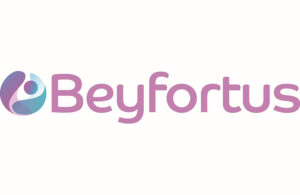 Respiratory syncytial virus (RSV) is a common cause of severe lower respiratory tract infections like pneumonia and bronchiolitis in infants and young children. Traditionally there have been no approved treatments for RSV infections, with care being largely supportive. But the landscape is quickly changing.
Respiratory syncytial virus (RSV) is a common cause of severe lower respiratory tract infections like pneumonia and bronchiolitis in infants and young children. Traditionally there have been no approved treatments for RSV infections, with care being largely supportive. But the landscape is quickly changing.
The FDA recently approved Beyfortus (nirsevimab), the first immunoprophylactic to prevent RSV disease in newborns, infants and toddlers. On the RSV vaccine front, FDA also approved GSK‘s (NYSE:GSK) Arexvy. Other RSV vaccine candidates are waiting in the wings.
A shift in the RSV treatment landscape
Beyfortus is a monoclonal antibody developed by AstraZeneca and Sanofi that provides protection against RSV with a single intramuscular injection. It is the first innovation in RSV prevention in over two decades. Until recently, the only preventive therapy on the market was Synagis, a monoclonal antibody used to help prevent serious lung disease from RSV in high-risk infants and young children. The drug, developed by MedImmune (eventually acquired by AstraZeneca), now belongs to Sobi.
With Beyfortus’ arrival, the RSV prophylaxis landscape could shift significantly. The drug represents the first major innovation in more than 20 years for preventing RSV infections in infants. It is also the first RSV preventive therapy designed to protect a broad population of infants, including those born healthy at term, preterm or with certain health conditions that increase their risk of severe RSV disease. With its recent approval in the U.S. and E.U., and regulatory reviews underway in other countries like China and Japan, Beyfortus is set to transform RSV prevention globally.
Clinical trials and safety
Three clinical trials demonstrated Beyfortus’ ability to significantly reduce medically-attended RSV lower respiratory tract infections compared to placebo in both preterm and term infants. Clinical data also shows it to be effective in children up to 24 months old who remain vulnerable to severe RSV disease. Potential side effects include rash and injection site reactions.
The recent FDA approval of Beyfortus was based on data from three late-stage clinical trials showing a favorable benefit-risk profile, leading to a unanimous recommendation for approval by the Antimicrobial Drugs Advisory Committee.
The FDA granted Fast Track designation to expedite Beyfortus’ development and regulatory review.